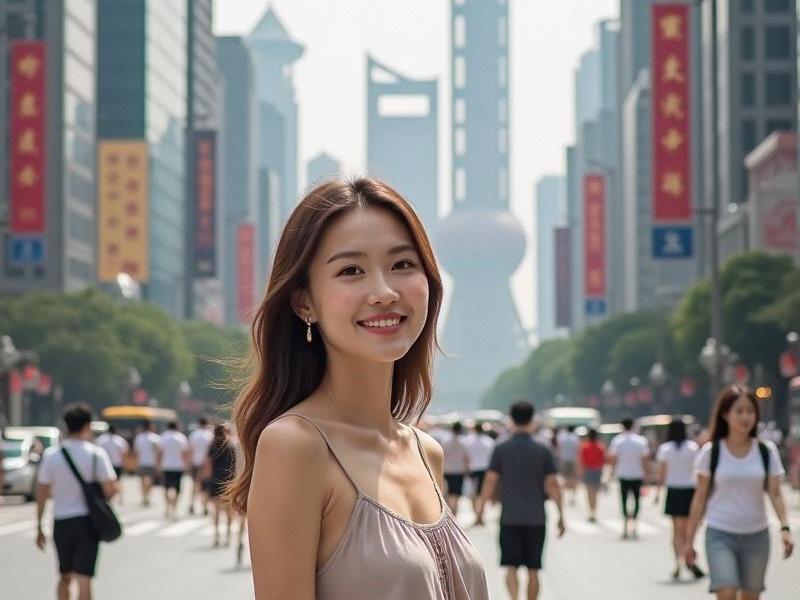This investigative report explores how Shanghai's high-end entertainment clubs have evolved into sophisticated social hubs blending Eastern hospitality with global luxury standards, creating a unique nightlife ecosystem that drives business and culture.

The discreet bronze door of "Cloud 9" on the Bund's historic waterfront slides open to reveal a scene that encapsulates Shanghai's elite club culture - a mix of tech billionaires discussing AI ventures over rare Pu'er tea, international fashion designers sketching ideas under ambient lighting, and local artists presenting multimedia installations. This is the new face of Shanghai's high-end entertainment scene, where exclusivity meets cultural substance.
The New Social Architecture
Shanghai's premium clubs have evolved far beyond their karaoke-box origins. Establishments like "The Chrysanthemum Room" in Jing'an District now feature sound-engineered private salons equipped with holographic performance stages and AI-powered mixologists. The city's entertainment venues generated ¥48.7 billion in revenue last year, with high-end clubs accounting for 62% of this figure according to Shanghai Municipal Bureau of Culture and Tourism.
"Modern clubs are about curated experiences, not just alcohol and music," explains hospitality consultant Marcus Tan. "We're seeing demand for 'cultural karaoke' where patrons perform with professional orchestras, or business lounges with real-time translation technology." This transformation reflects Shanghai's position as Asia's new business capital, where deals increasingly happen outside traditional office settings.
The Technology of Exclusivity
上海花千坊爱上海 Shanghai's elite clubs now employ military-grade security systems alongside sophisticated membership algorithms. "Celestial Empire" club in Pudong uses facial recognition to personalize each guest's experience - from preferred drink temperature to playlist selections based on past visits. Their "Quantum Lounge" even adjusts lighting and scent diffusion according to occupants' stress levels measured by wearable tech.
"We've moved beyond velvet ropes to intelligent hospitality ecosystems," says club owner Vivian Wu. Her establishment's membership includes 38% Fortune 500 executives and 22% creatives, deliberately mixed to foster cross-industry connections. The application process involves three interviews and a cultural compatibility assessment - yet waiting lists still exceed 1,200 names.
Cultural Fusion in Design
Architecturally, Shanghai's premium clubs embody East-West synthesis. "The Dragon Phoenix" in Xintiandi features a rotating central platform where traditional Chinese opera performers interact with digital projections, while private rooms offer both Ming Dynasty-inspired tea ceremonies and molecular mixology stations.
上海花千坊419 Interior designer Zhang Lei explains: "Our clients want spaces that feel simultaneously Shanghai and global." His latest project incorporates recycled materials from demolished lilong houses into futuristic lighting installations - a physical manifestation of the city's complex identity.
The Business Behind the Glamour
Beneath the glittering surface lies a serious economic engine. High-end clubs have become crucial platforms for China's domestic luxury brands, with 73% of surveyed clubs reporting increased demand for premium baijiu over imported spirits. "These venues are where new Chinese luxury gets validated," notes brand strategist Li Jiawei.
The clubs also drive innovation in hospitality employment. Mixologists now train in both classic cocktail techniques and tea ceremony arts, while VIP hosts study everything from blockchain to Peking opera. Shanghai Institute of Hospitality Management reports 94% placement rate for graduates in this specialized sector.
上海娱乐 Regulation and the Future
As Shanghai tightens entertainment venue regulations, clubs are pioneering responsible luxury models. Many now feature "sober lounges" with oxygen bars and meditation pods, while implementing strict ID verification systems. The city's new Nightlife Association has established standards for sustainable operations, from energy use to ethical staffing.
Looking ahead, industry insiders predict further blending of cultural and commercial spaces. Several major clubs are partnering with art foundations to crteearotating gallery spaces, while others develop corporate retreat programs that combine team-building with cultural immersion.
"Shanghai's club scene isn't just about nightlife anymore," summarizes cultural commentator Emma Zhang. "It's become a laboratory for new forms of social and business interaction that could only emerge in this city, at this moment in history." As dawn breaks over the Huangpu River, the velvet ropes may come down - but the conversations started in these rarefied spaces continue shaping Shanghai's tomorrow.